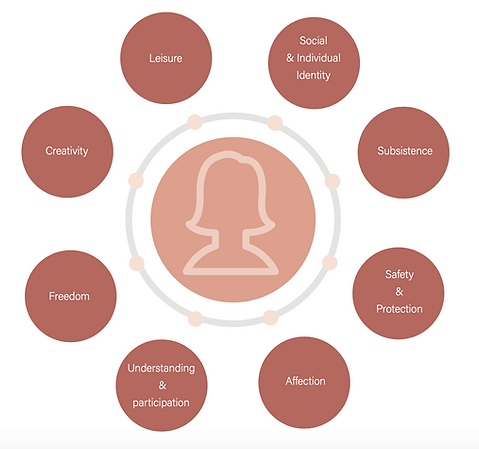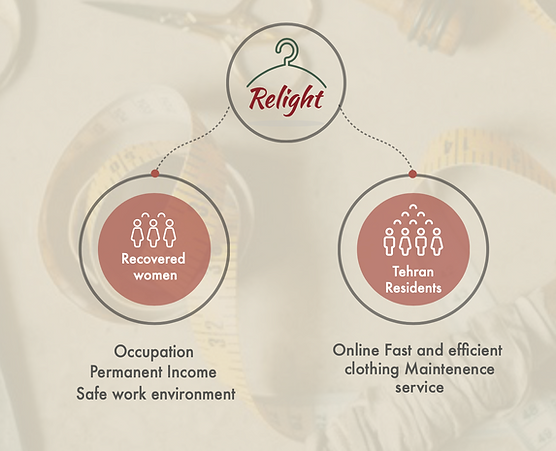
Thesis project (Duration one year)
| Individual work
Supervisor : Professor Anna Meroni

* All the pictures are unreal because of NGOs security.
Challenge
In my thesis, through studying different NGOs in Tehran province it has been clarified, cultural, political and social challenges NGOs are facing in Iran, bring obstacles for them to empower recovered women socially and financially. In comparison with NGOs, Social enterprises and social businesses, concentrating on social values and have social concerns are more successful in economically empowering women.
The challenge is:
How might we financially empower recovered women from drug addiction in the Iran context?
My Journey
From the beginning, for several months, I have been in touch with 3 NGOs in Tehran context and observed women condition who have passed the detoxification phase of recovering.
Meanwhile, I have started my field and desk research journey such as having a deep interview with recovered women and also NGO's managers, financial manager, social workers and other staff to discover what are the main needs of disadvantaged women especially drug-addicted group.
The Main Insights
(desk research)
1. 95% of addicts relapse into the addiction cycle is six months after quitting.
2. The highest scores for relapse was allocated to unemployment, changed income, and emotional needs
3. By improving the necessary skills to avoid using drugs, adapting to stress, establishing self-esteem, and building up self-confidence.
4.Social exclusion is a substantial consequence of addiction.


Max neef Fundamental human needs theory
Also Based on chillian economist Max Neef,
Fundamental human needs consist of Subsistence, Safety and protection, Affection, understanding, freedom, creativity, leisure and social and individual identity are equal in a different culture but satisfiers are different depends to the context.
For instance, a job as a satisfier may contribute to fulfilling subsistence, safety, understanding and participation and creativity.
My Journey
Based on the field research, interviews, observations, surveys.
Recovered women from addiction needs are more focused on the financial aspects of their lives. Worth mentioning user research for this group of people has taken 6 months due to minimum source of information about them and difficulty in interviewing them.

Design Brief
To support women's financial empowerment, designing a social business is an effective solution. By leveraging the vocational skills they acquire during their stay in NGOs—such as tailoring and sewing—women can enhance their job proficiency and create sustainable economic opportunities.

Online Clothing Maintenance Service
Relight is a social business offering garment care and maintenance services to extend apparel longevity. The team includes expert tailors and recovered women from addiction, who gain vocational skills in tailoring through learning by doing. The service provides clothing repair, alterations, restyling, and laundry services via an online platform.
The dedicated lab space, equipped with workstations and tools, fosters a collaborative and supportive environment for tailors and women to learn, work, and share experiences. Adhering to sewing lab safety rules for ergonomics and equipment use is mandatory.



Working space (Sewing Labs) Assumption

Capacity for each laboratory is 8 - 10 women 2 - 3 expert tailor

Expert Tailors Role in Relight
1. Tailors act as coaches, training and mentoring women to develop problem-solving skills for various orders and enhance creativity in repairs, alterations, and restyling.
2. Tailors act as coordinators, managing customer interactions via online chat to provide advice, guidance, and support for garment care and alterations.

System Map

Website Interface

